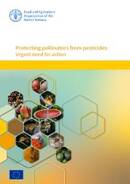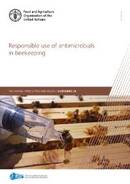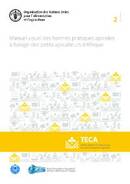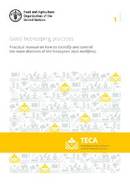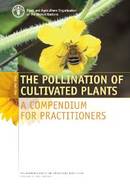Ressources
Protecting pollinators from pesticides – Urgent need for action
Author: FAO
Pollinators are essential for fruit, vegetable, oilseed and forage production, as well as for the production of seed for many root and fibre crops. In addition to being essential to food security and quality, pollinators contribute to the production of medicines, biofuels (e.g. canola and palm oil), fibres (e.g. cotton and linen) and construction materials such as timber. Livelihoods based on beekeeping and honey hunting are embedded in many rural economies. The large importance of pollinators, for both wild and cultivated plants, means they are fundamental to maintain ecosystem services and uphold global biodiversity.
Responsible use of antimicrobials in beekeeping
These guidelines focus on responsible use of antimicrobials in sustainable apiculture. Following a one-health approach, they aim to protect not only honey bees, but even human health (e.g. reducing the risks of residues in hive products and preventing development of antimicrobial resistance) and the environment. The best way to reach this goal is to prevent and to guarantee the early detection of clinical cases of the main honey bee diseases through the application of good beekeeping practices and biosecurity measures.
Manuel visuel des bonnes pratiques apicoles à l’usage des petits apiculteurs d’Afrique
Le présent manuel est un guide visuel fonctionnel des bonnes pratiques apicoles durables à l’usage des petits apiculteurs d’Afrique. Concis et pratique, ce document constitue un outil de référence destiné à la formation apicole. S’ouvrant sur un aperçu illustré des effets préjudiciables de certaines pratiques de récolte sauvage du miel, cette publication entend éveiller l’intérêt des lecteurs partisans d’approches plus durables. Dans une deuxième partie, le guide présente les principaux équipements apicoles en mettant en avant leur utilisation au service de la santé des abeilles et d’une récolte de miel de qualité. Le manuel esquisse enfin les bonnes pratiques apicoles qui permettront aux éleveurs d’abeilles d’obtenir un excellent miel selon des procédés durables.
Good beekeeping practices: Practical manual on how to identify and control the main diseases of the honeybee (Apis mellifera)
Author: FAO
This is a practical tool to help beekeepers, veterinarians and beekeeping advisory services to properly identify main honeybee diseases and to take the most appropriate actions in the apiary to control and/or prevent disease outbreaks. This publication follows the TECA publication Main bee diseases: good beekeeping practices (2018) which provided a more general overview of good beekeeping practices for bee diseases.
The Pollination of Cultivated Plants: A compendium for practitioners (Volume 1)
Author: FAO
More than twenty years ago, the Food and Agriculture Organization of the United Nations contributed to the growing recognition of the role of pollination in agricultural production, with the publication of "The Pollination of Cultivated Plants in the Tropics". Since that time, the appreciation of pollinators has grown, alongside the realization that we stand to lose them. But our knowledge and understanding of crop pollination, pollinator biology, and best management practices has also expanded over this time.
This volume is the first of two "compendiums for practitioners", sharing expert knowledge on all dimensions of crop pollination in both temperate and tropical zones. The focus in this first volume is on applied crop and system-specific pollination.


